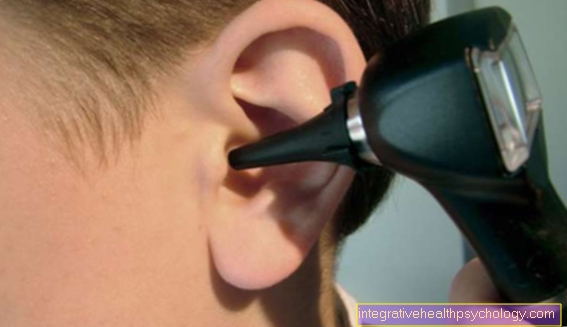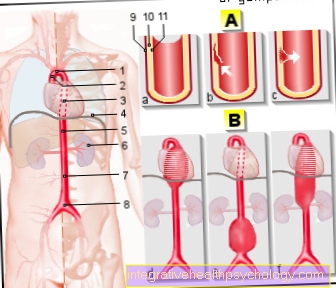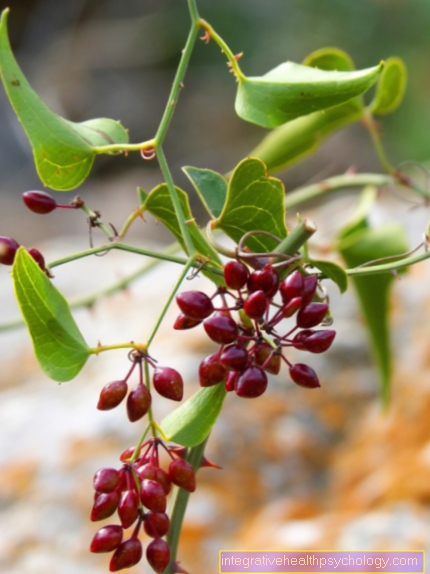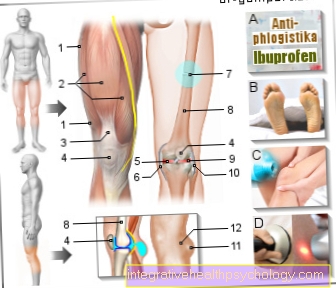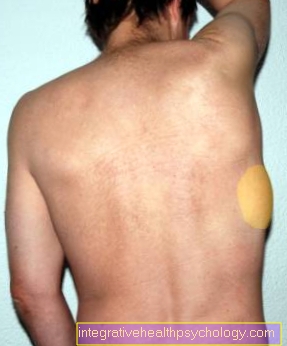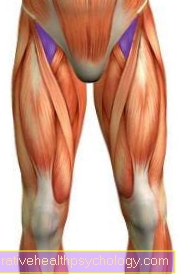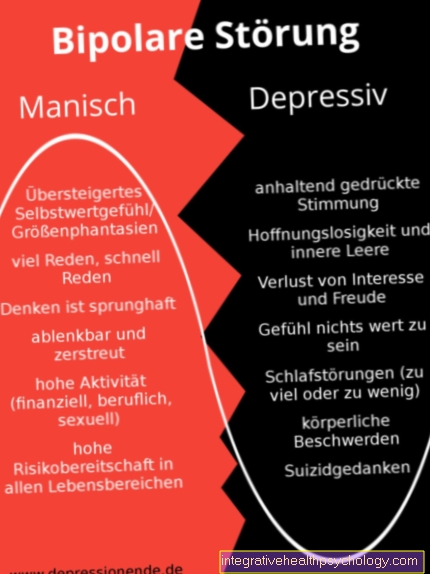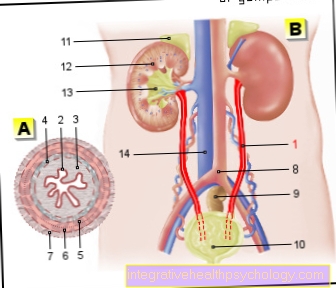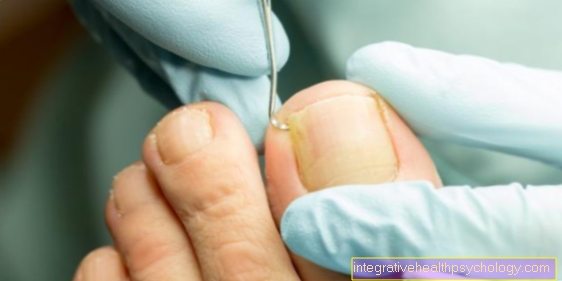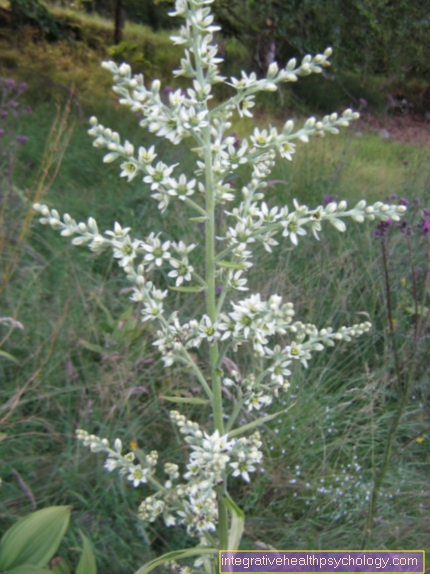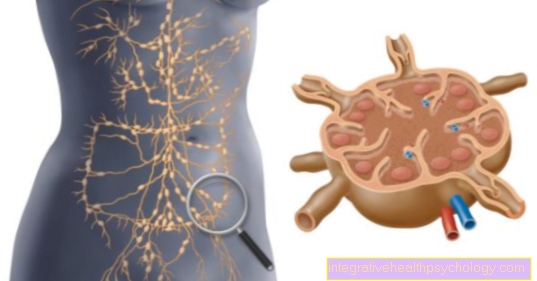Vividrin® acute nasal spray
Introduction - What is Vividrin Acute Nasal Spray?
The Vividrin acute nasal spray is an antiallergic / antihistamine that is used for hay fever. Vividrin contains 0.14 mg azelastine hydrochloride as the active ingredient per spray. This blocks the histamine receptors in the body, which are responsible for triggering the allergic reaction, and thus reduces the allergy symptoms. In addition, azelastine has a stabilizing effect on immune cells, which means that less histamine is released.
Find out more about the topic here: Symptoms Of Hay Fever - What To Look For!

Indications for Vividrin® acute nasal spray
The Vividrin® acute nasal spray is indicated for seasonal or year-round allergic rhinitis such as B. hay fever. The active ingredient azelastine can also be used as eye drops for allergic conjunctivitis. The Vividrin® acute nasal spray is available over the counter and does not require a prescription from a doctor.
You can find out more about this here: Medicines for hay fever
Vividrin® acute nasal spray for hay fever
Hay fever (allergic rhinitis) is a common overreaction the immune system reacts to certain plant proteins in the pollen that are released into the environment by the plants and grasses. Symptoms such as itchy eyes and a blocked, runny nose occur. Medicines such as Vividrin acute nasal spray help to weaken the immune response and thus also the symptoms of hay fever.
Read more about the topic here: pollen allergy
Active ingredient and effect
Allergic rhinitis (hay fever) is one of the type I allergies (immediate allergy) and is the most common form of allergies. After a few seconds or minutes, the immune reaction to the allergen can be clearly felt. Before an allergic reaction can occur, a sensitization must first take place, i.e. the first contact of the allergen with the body, which usually proceeds without symptoms. Through the first contact with the allergen, certain messenger substances (interleukin-4) are released, which in turn activate the so-called B cells. These B cells then produce specific IgE antibodies against the allergen. IgE antibodies bind to mast cells after their production and become active antibodies.
Upon renewed contact with the allergen, the binding of the allergen to the antibody leads to a massive release of inflammatory messengers such as histamine and prostaglandins, which are responsible for the allergy symptoms.
Active ingredients like azelastine belong to the H1 antihistamines and block the histamine receptors in order to avoid the symptoms they convey. In addition, azelastine stabilizes the mast cells to reduce the release of histamine. The symptoms should be significantly better through the use of Vividrin acute nasal spray.
You can find more information on the subject in the following article: Active ingredients of antihistamines
side effect
Various side effects can occur when using Vividrin acute nasal spray. One of the most common side effects is a mostly bitter taste on the tongue, which can cause nausea. Rare side effects are irritation of the already inflamed nasal mucosa as well as burning and tingling of the nasal mucosa. It can also lead to increased sneezing and nosebleeds. Very rare side effects are rash and hives, as well as tiredness, dizziness and fatigue.
Interaction with other drugs
No interactions are known to date for the use of the Vividrin® acute nasal spray.
Azelastine, also available in tablet form, can increase the effects of other antihistamines, sleeping pills, or opioid pain relievers. In general, when using medication, alcohol should not be consumed, as this can also increase the effect.
Contraindications - When should Vividrin® acute nasal spray not be given?
Vividrin® akut nasal spray must not be used if the use of the nasal spray causes hypersensitivity to the active ingredient azelastine and increases the allergic symptoms. It is also not recommended for children under 6 years of age.
Read more on the topic: Hay fever in children
dosage
The amount of Vividrin® acute nasal spray recommended by the manufacturer corresponds to an application of one spray per nostril twice a day. This corresponds approximately to the amount of 0.56 mg azelastine hydrochloride per day. Even with severe local overdosing, symptoms of poisoning are not to be expected due to the small amount of active ingredient. Since Vividrin® acute nasal spray is intended for long-term treatment, it should be used regularly.
What does the Vividrin® acute nasal spray cost?
The price of Vividrin® acute nasal spray is on average between € 5 and € 8 for a pack size of 5 mL.
Alternatives to Vividrin® acute nasal spray
A very good alternative is the Allergodil® acute nasal spray, which also uses azelastine as an active ingredient. Scientists advise using nasal sprays containing the active ingredients azelastine and levocabastine for nasal congestion. The active ingredients azelastine, levocabastine or ketotifen are recommended for patients with primarily allergic symptoms in the eyes.
Find out more about the topic here: Medicines for hay fever and Nasal spray with cortisone
Can be taken during pregnancy and breastfeeding?
It is not yet known whether azelastine can harm the unborn child. Therefore, pregnant women should use the active ingredient azelastine in the first trimester either as a nasal spray or as Vividrin® acute eye drops. If you use it after the first three months, you should first consult a doctor.
As azelastine passes into breast milk in small amounts, the use of Vividrin acute nasal spray is not recommended during breast-feeding. +
You can find more information on the subject in the following article: Medication during breastfeeding - Everything you need to know!
Effectiveness of the pill
General antihistamines and antiallergic drugs, including the active ingredient in Vividrin acute nasal spray, do not reduce the effectiveness of the pill. There are no known interactions between azelastine and birth control pills.
Find out more about: What drugs affect the pill?
Recommendations from the editors!
You can find a lot more information on the subject in the following articles:
- Desensitization for hay fever
- Symptoms of runny nose
- Nasal mucosal inflammation
Exclusion of liability / disclaimer
We would like to point out that medication must never be discontinued, applied or changed independently without consulting your doctor.
Please note that we cannot claim that our texts are complete or correct. The information may be out of date due to current developments.

